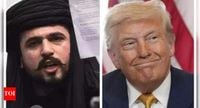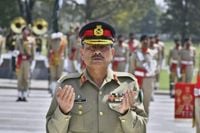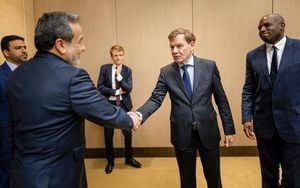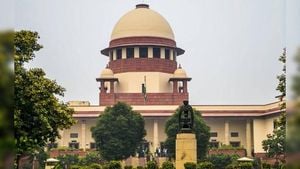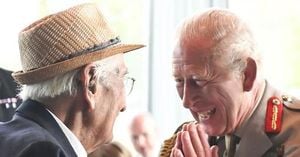On August 12, 2025, the United States State Department announced the official designation of Pakistan’s Balochistan Liberation Army (BLA) and its armed wing, the Majeed Brigade, as Foreign Terrorist Organizations (FTOs). This move, widely welcomed by Pakistani officials, marks a significant escalation in Washington’s counterterrorism strategy in South Asia and has already begun to reverberate through diplomatic, economic, and political circles on both sides of the world.
The BLA, a separatist group operating primarily in Balochistan—Pakistan’s largest yet least populated province—has been blamed for a string of deadly attacks in recent years. According to the Associated Press, the BLA claimed responsibility for suicide bombings near Karachi airport and in the port city of Gwadar in 2024, as well as a high-profile hijacking of the Jaffar Express train in March 2025. That attack left 31 civilians and security personnel dead and saw more than 300 passengers held hostage, a tragedy that shocked the nation and drew international condemnation.
Announcing the designation, U.S. Secretary of State Marco Rubio stated, “Today’s action taken by the Department of State demonstrates the Trump administration’s commitment to countering terrorism. Terrorist designations play a critical role in our fight against this scourge and are an effective way to curtail support for terrorist activities.” The new status as an FTO means that the BLA and its supporters will now face much tougher scrutiny and legal consequences in the United States and Europe, a step up from its previous classification in 2019 as a Specially Designated Global Terrorist group.
Pakistan’s Ministry of Foreign Affairs reacted swiftly and positively, underscoring Islamabad’s ongoing battle against terrorism. “Pakistan remains a steadfast bulwark against terrorism. Our sacrifices have secured critical counterterrorism successes, not only for the country, but for regional stability and global security,” the ministry said in a statement carried by the AP and other outlets. Officials noted that the BLA had already been banned domestically in 2024, and that this international recognition of the threat would bolster Pakistan’s own efforts to maintain peace and security in the region.
The timing of the U.S. decision is no accident. The designation coincides with a visit to Washington by Pakistan’s army chief, Field Marshal Asim Munir, and follows closely on the heels of a major trade agreement between the two countries. As reported by the Washington Examiner, the deal is expected to open the door for U.S. firms to help develop Pakistan’s largely untapped oil reserves in resource-rich Balochistan and lower trade tariffs for Islamabad. President Donald Trump, touting the deal, remarked that it would allow both countries to “work together on developing their massive Oil Reserves.”
Yet, the economic promise is shadowed by persistent violence and deep-seated grievances. Balochistan, home to the Sunni Muslim Baloch ethnic minority, has long been a hotbed of separatist sentiment. Since the early 2000s, groups like the BLA have fought for autonomy and a greater share of the region’s natural resources, which they argue have been plundered by the central government in Islamabad. The BLA has also fiercely opposed the extraction of resources by both Pakistani and foreign companies, including Chinese nationals working on multibillion-dollar projects tied to the China-Pakistan Economic Corridor.
Violence in the province remains stubbornly high despite repeated military crackdowns. Over the past week alone, Pakistani troops killed 50 militants in the Zhob district, and on August 11, at least nine Pakistani soldiers died during a militant assault on a police station and border force compound in southwestern Balochistan, according to the BBC and AP. An explosion at an arms depot in Nowshera district, Khyber Pakhtunkhwa province, added to the sense of instability on August 12, although authorities have yet to release full details.
While the Pakistani government and its allies in Washington frame the FTO designation as a necessary step to curb terrorism, Baloch nationalists and separatist leaders see it as a grave injustice. Mir Yar Baloch, a prominent Baloch leader, issued a scathing response. “The Baloch are not terrorists. They are a nation that has endured 78 long years of state terrorism, economic plunder, radioactive poisoning from Pakistan’s nuclear tests, foreign invasion, and brutal occupation by the extremist and artificial state of Pakistan,” he wrote in an open letter, as cited by the Washington Examiner and other outlets.
Mir Yar Baloch further accused Pakistan of weaponizing radical groups to suppress legitimate political voices, referencing the alleged use of IS-Khurasan, a group he described as “a deadly proxy nurtured by the ISI,” to target peaceful Baloch activists. He argued, “This is yet another stark example of how Pakistan weaponises radical groups to crush legitimate political voices, suppress democratic aspirations, and destabilise the region.”
He also highlighted the Baloch people’s historical goodwill toward the United States, pointing out that during the Soviet invasion of Afghanistan and after 9/11, Balochistan remained peaceful toward American and NATO interests. “Even during the Soviet invasion of Afghanistan, Baloch people never raised arms against America or the Soviets. After 9/11, NATO supply lines passed through Balochistan, yet not a single attack was carried out by Baloch freedom fighters or civilians on American personnel or convoys,” Mir Yar Baloch wrote in a widely shared X post.
Baloch leaders insist that the U.S. is making a mistake by siding with Islamabad, arguing that recognizing Balochistan’s independence would provide Washington with “a genuine ally, moderate, stable, and aligned with democratic values, far preferable to a corrupt military elite rejected even by its own people.” Mir Yar Baloch also criticized Pakistan for sheltering Osama bin Laden for a decade, contrasting the Baloch record of cooperation with what he described as Islamabad’s duplicity.
Meanwhile, security analysts in Islamabad see the U.S. action as a major policy shift. Syed Muhammad Ali, speaking to the AP, noted that the designation “indicates a major policy shift by the Trump administration toward South Asia, highlighting the growing role of military diplomacy, deepening bilateral cooperation on counterterrorism, and showing that Washington shares Pakistan’s security concerns about Baloch insurgents.” He added that the move demonstrates the U.S. commitment to stability in Pakistan and its oil- and gas-rich Balochistan province.
On the same day as the FTO designation, the United States and Pakistan held a round of counterterrorism talks in Islamabad, reaffirming their shared commitment to combating terrorism in all its forms. The talks, co-chaired by senior officials from both sides, emphasized the need for effective strategies against threats from the BLA, Islamic State, and the Pakistani Taliban.
As the dust settles on this latest diplomatic maneuver, the region remains tense. The BLA’s new status as a Foreign Terrorist Organization will likely complicate the separatists’ international outreach and fundraising, while also raising the stakes for U.S.-Pakistan cooperation in both security and economic realms. For the people of Balochistan—caught between insurgency, military operations, and foreign interests—the future remains as uncertain as ever.
